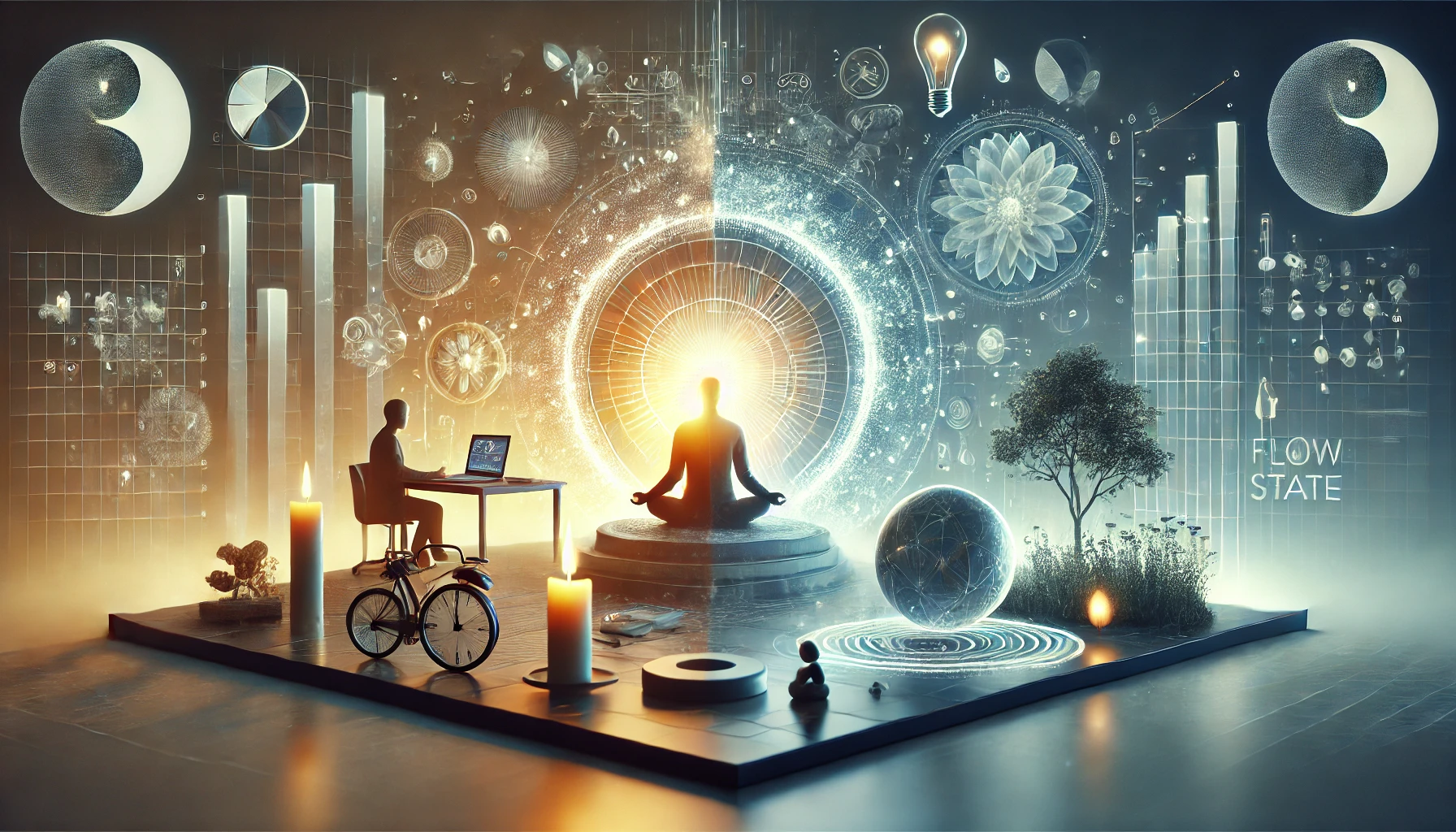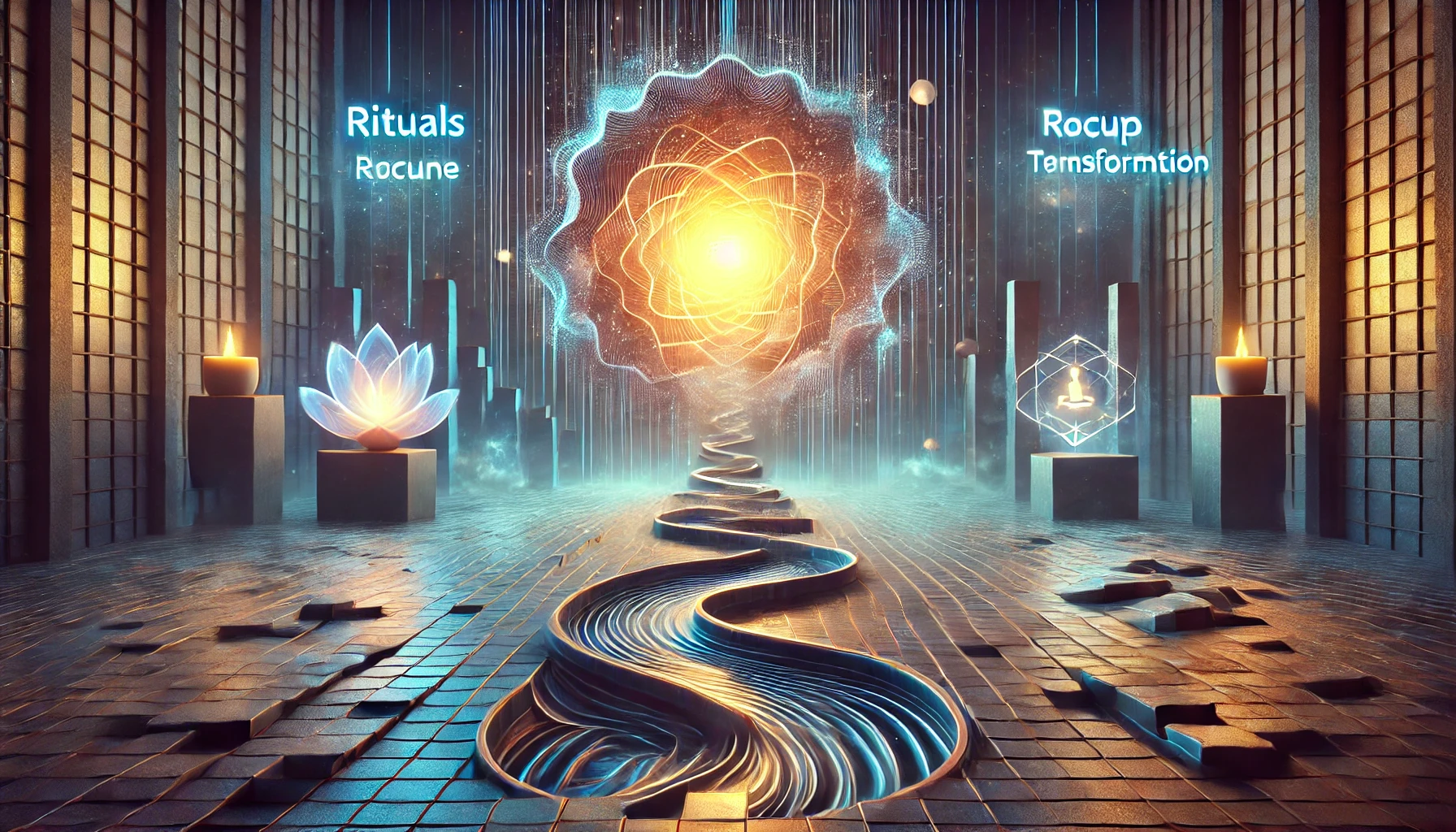Rituals and Flow: How to Create Meaningful Routines for a More Fulfilling Life
- Tempo Próprio

- Feb 12
- 3 min read
Have you ever wondered what the difference is between a routine and a ritual? We often go through our days on autopilot, carrying out tasks without giving due attention to what we are doing. But what if we could transform our daily activities into moments of meaning and presence? In this article, we explore the importance of rituals for well-being, how they impact mental health and how they can be the key to accessing the state of flow, that moment of total immersion and full productivity.

The Difference Between Routine and Ritual
A routine is made up of habits and actions that we repeat daily. It helps us organize our lives and maintain a certain predictability. However, when it becomes mechanical and devoid of meaning, it can generate feelings of boredom and disconnection. A ritual, on the other hand, is an act filled with purpose. It transforms a common action into a special moment, bringing presence and intention to what we are doing.
Imagine the difference between simply drinking a cup of coffee in a hurry and turning it into a small ritual: choosing the beans, smelling the aroma, preparing it slowly and savoring every sip. Small details like these help us to get out of automatic mode and truly experience each experience.
The Impact of Rituals on Mental Health
Rituals are powerful tools for emotional regulation. They help create anchors in daily life, reducing stress and providing a sense of stability. Studies show that rituals can increase feelings of control and predictability, reducing anxiety and promoting emotional well-being.
Additionally, social rituals, such as sharing a family meal or performing a morning practice, strengthen bonds and foster connection. In a fast-paced world, these small practices allow us to slow down and truly connect with ourselves and others.
Flow: The State of Total Immersion
Flow is a neuroscience concept that describes a mental state in which we are completely immersed in an activity. In this state, we lose track of time, our performance reaches its peak, and we feel a deep satisfaction in what we are doing. Great athletes, artists, and high-performance professionals often report experiences of flow.
This state occurs when there is a balance between challenge and skill: the activity cannot be too easy, so as not to generate boredom, nor too difficult, so as not to cause frustration. Rituals are essential to prepare our mind and body to enter this state of immersion.

How Rituals Facilitate Flow
Creating a ritual before starting an activity can be the key to accessing flow more easily. Small habits can prepare our minds for a state of deep concentration. Some strategies include:
Transition Rituals: Creating a small ritual to mark the transition from one activity to another can help improve focus. For example, before starting work, taking three deep breaths and organizing your desk can signal to your brain that it’s time to focus.
Prepared Environment: Keeping an organized environment free from distractions encourages immersion in the activity.
Connection with Purpose: Having clarity about why we are taking a certain action increases engagement and motivation.
Applying Rituals in Everyday Life
Turning ordinary activities into rituals may seem like a small thing, but it can make a big difference. Some ideas include:
Create a morning ritual to start your day with more intention, such as stretching, meditation, or a leisurely cup of coffee.
Establish closing rituals at the end of the workday, such as a walk outside or a moment to reflect on the day's achievements.
Incorporate social rituals, such as eating dinner without technological distractions and enjoying the presence of family members.
Conclusion
Rituals help us transform our daily lives into something more meaningful. They promote connection, presence, and well-being, and are a powerful tool for achieving a state of flow. Whether at work, at play, or in our personal lives, incorporating small rituals can bring more satisfaction and balance to our daily lives.
If you want to learn more about how to apply these concepts to your life, explore our content on well-being, neuroscience and personal development. Leave your comment, like the video and subscribe to the channel for more tips on how to live with more purpose and presence!







Comments